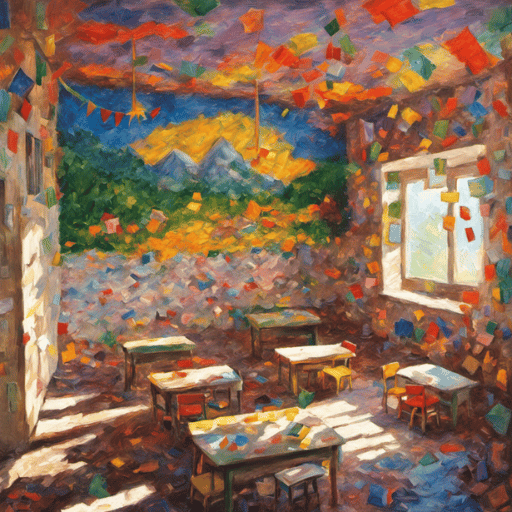Event Planner: Preschool/Kindergarten Celebration of Traditional Māori Legends and Stories
Event planning in preschools holds significant importance as it plays a pivotal role in fostering holistic child development and creating memorable learning experiences. These events not only offer a platform for children to showcase their talents and skills but also provide opportunities for social interaction, emotional growth, and cognitive development. Well-executed event planning engages parents, teachers, and young learners in a collaborative effort that enhances the sense of community within the preschool. By carefully organizing and structuring various events, preschools can establish an environment where children thrive, parents actively participate, and lifelong positive impressions are formed. Let’s look at an example Celebration of Traditional Māori Legends and Stories event planning template you can use in your Preschool/Kindergarten office in New Zealand.
Event description/objective: Understanding New Zealand’s indigenous culture.
Event Planning Template for Celebration of Traditional Māori Legends and Stories
Event Planning Template:
Event Name: Celebration of Traditional Māori Legends and Stories
Event Date: [Date]
Event Time: [Time]
Event Venue: [Venue]
Objective:
The objective of this event is to promote understanding and appreciation of New Zealand’s indigenous culture, specifically focusing on traditional Māori legends and stories. Through this celebration, we aim to educate and engage the community, particularly preschool and kindergarten children, in learning about Māori culture.
Target Audience:
– Preschool and kindergarten children
– Parents and caregivers
– Teachers and educators
– Local community members
Event Schedule:
1. Opening Ceremony:
– Welcome speech by a Māori elder
– Traditional Māori blessing (karakia)
– Performance of a Māori waiata (song)
2. Storytelling Sessions:
– Arrange multiple storytelling sessions throughout the event
– Engage experienced Māori storytellers to narrate traditional Māori legends and stories
– Allocate specific time slots for different age groups to ensure age-appropriate content
3. Interactive Workshops:
– Conduct hands-on workshops to provide a deeper understanding of Māori culture
– Examples: Māori language lessons, traditional Māori art and craft activities, haka (Māori war dance) workshops
4. Cultural Performances:
– Showcase traditional Māori performances, such as kapa haka (Māori performing arts)
– Invite local Māori cultural groups or schools to perform traditional songs, dances, and poi (Māori performance art with swinging balls)
5. Food and Refreshments:
– Offer traditional Māori food and refreshments for attendees to experience Māori cuisine
– Collaborate with local Māori food vendors or caterers to provide authentic dishes
6. Information Booths:
– Set up information booths to provide educational resources about Māori culture
– Display traditional Māori artifacts, books, and resources for attendees to explore
7. Closing Ceremony:
– Thank you speech and acknowledgments
– Final performance or waiata by all participants
– Closing remarks and invitation to future events promoting Māori culture
Promotion and Marketing:
1. Create a promotional campaign:
– Design visually appealing posters, flyers, and banners featuring Māori cultural elements
– Utilize social media platforms to reach a wider audience
– Collaborate with local media outlets to promote the event
2. Engage with local preschools and kindergartens:
– Distribute event flyers and information to preschools and kindergartens in the area
– Offer special invitations to these institutions to encourage attendance
3. Collaborate with local Māori organizations:
– Seek partnerships with local Māori organizations, cultural centers, or iwi (Māori tribes) to enhance event promotion and authenticity
– Request their support in spreading the word about the event within the Māori community
Budget:
1. Determine the overall budget for the event, including expenses for venue rental, performers, materials, food, marketing, and any additional costs.
2. Seek sponsorship opportunities from local businesses, organizations, or government entities that align with the event’s objectives.
3. Allocate funds for necessary permits, licenses, and insurance coverage.
4. Regularly track and update the budget to ensure financial accountability throughout the planning process.
Evaluation:
1. Develop evaluation criteria to measure the success of the event, such as attendance numbers, participant feedback, and media coverage.
2. Collect feedback from attendees, including children, parents, and educators, through surveys or comment cards.
3. Analyze the feedback received and identify areas of improvement for future events.
4. Share the event’s success and impact with stakeholders, sponsors, and the wider community through reports, testimonials, and media coverage.
Note: This event planning template can be customized further based on specific requirements and resources available
Ready to start planning?
Click the button above to get our Preschool/Kindergarten event planner that can be used to plan this event, see all your upcoming events on a calendar and make your event planning process easier.

